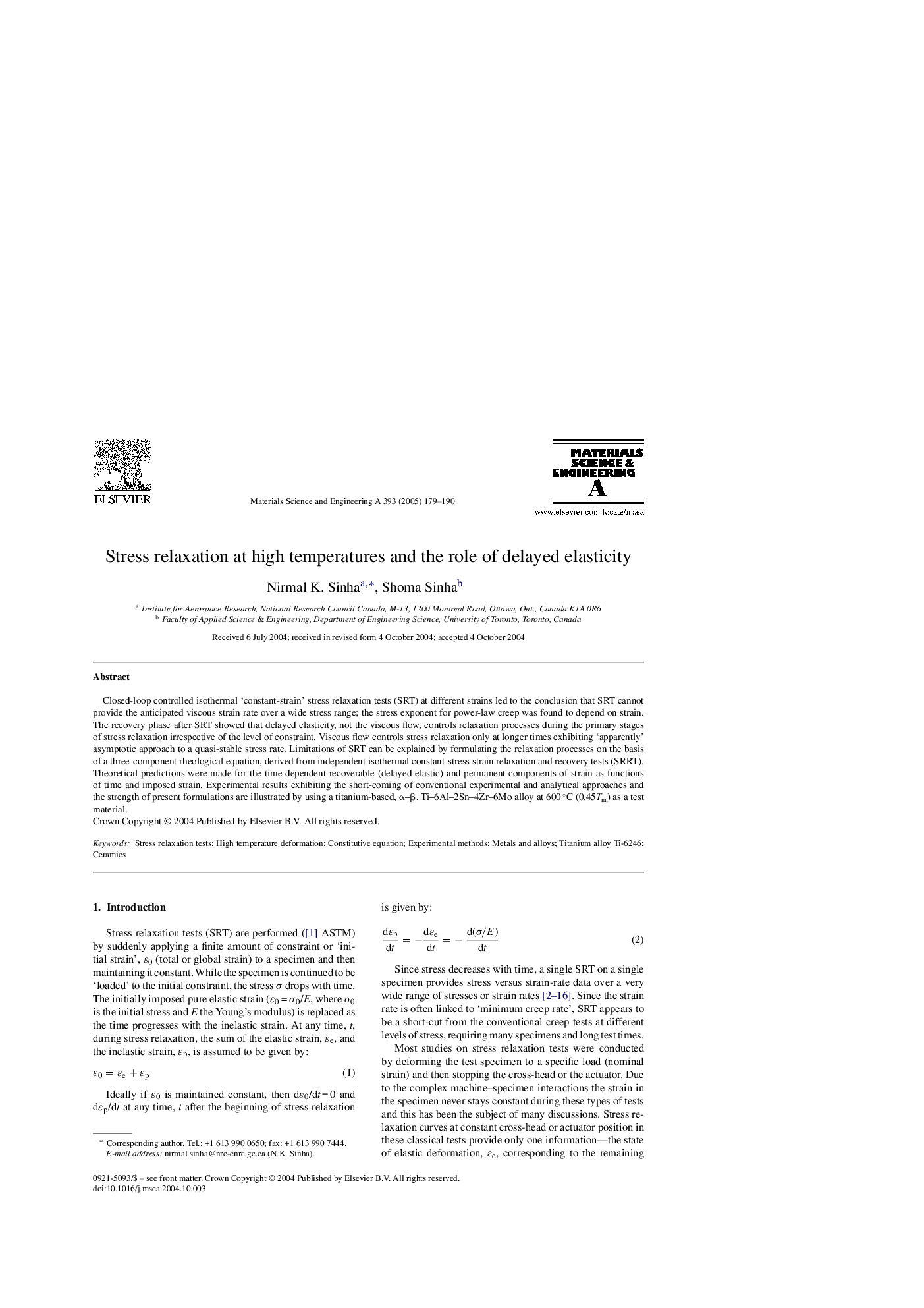| Article ID | Journal | Published Year | Pages | File Type |
|---|---|---|---|---|
| 9796499 | Materials Science and Engineering: A | 2005 | 12 Pages |
Abstract
Closed-loop controlled isothermal 'constant-strain' stress relaxation tests (SRT) at different strains led to the conclusion that SRT cannot provide the anticipated viscous strain rate over a wide stress range; the stress exponent for power-law creep was found to depend on strain. The recovery phase after SRT showed that delayed elasticity, not the viscous flow, controls relaxation processes during the primary stages of stress relaxation irrespective of the level of constraint. Viscous flow controls stress relaxation only at longer times exhibiting 'apparently' asymptotic approach to a quasi-stable stress rate. Limitations of SRT can be explained by formulating the relaxation processes on the basis of a three-component rheological equation, derived from independent isothermal constant-stress strain relaxation and recovery tests (SRRT). Theoretical predictions were made for the time-dependent recoverable (delayed elastic) and permanent components of strain as functions of time and imposed strain. Experimental results exhibiting the short-coming of conventional experimental and analytical approaches and the strength of present formulations are illustrated by using a titanium-based, α-β, Ti-6Al-2Sn-4Zr-6Mo alloy at 600 °C (0.45Tm) as a test material.
Keywords
Related Topics
Physical Sciences and Engineering
Materials Science
Materials Science (General)
Authors
Nirmal K. Sinha, Shoma Sinha,
